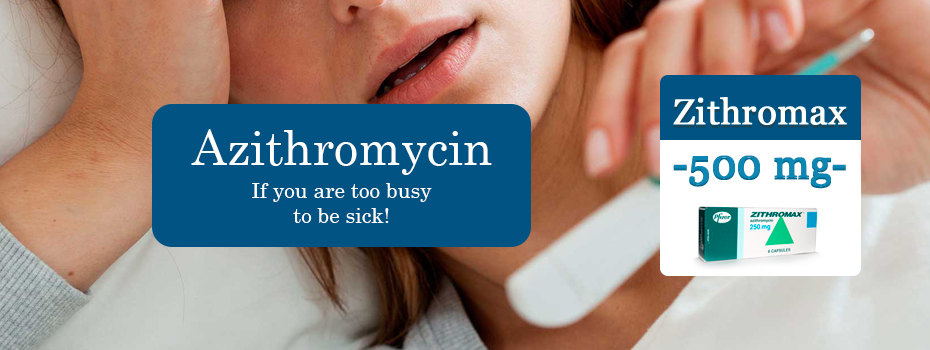Generic Xifaxan
 |
Active component:
RifaximinPackages: 200/400 mg |
Xifaxan (Rifaximin) 400 mg buy online at our online pharmacy: | ||
| Package | Price | Currency: |
|---|---|---|
400 mg × 180 pills | $ 564.90 $ 428.90 $ 2.38 per pill | Buy Xifaxan 400 mg × 180 » |
400 mg × 90 pills | $ 281.90 $ 230.90 $ 2.57 per pill | Buy Xifaxan 400 mg × 90 » |
400 mg × 60 pills | $ 188.90 $ 166.90 $ 2.78 per pill | Buy Xifaxan 400 mg × 60 » |
400 mg × 30 pills | $ 99.90 $ 93.90 $ 3.13 per pill | Buy Xifaxan 400 mg × 30 » |
Xifaxan (Rifaximin) 200 mg buy online at our online pharmacy: | ||
| Package | Price | Currency: |
|---|---|---|
200 mg × 180 pills | $ 389.90 $ 230.90 $ 1.28 per pill | Buy Xifaxan 200 mg × 180 » |
200 mg × 90 pills | $ 194.90 $ 140.90 $ 1.57 per pill | Buy Xifaxan 200 mg × 90 » |
200 mg × 60 pills | $ 130.90 $ 111.90 $ 1.86 per pill | Buy Xifaxan 200 mg × 60 » |
200 mg × 30 pills | $ 68.90 $ 64.90 $ 2.16 per pill | Buy Xifaxan 200 mg × 30 » |
We accept major debit cards, credit cards and pre-paid credit cards: Visa, MasterCard and other
Manufacturer: Lupin Limited
Xifaxan, also known by its generic name Rifaximin, is a highly effective medication used primarily to treat certain bacterial infections in the intestines. This prescription medication falls under the class of drugs called antibiotics and is classified as a rifamycin derivative. Xifaxan is commonly prescribed for the treatment of traveler's diarrhea caused by non-invasive strains of Escherichia coli (E. coli) and for reducing the risk of recurring episodes of overt hepatic encephalopathy in adults.
The active ingredient in Xifaxan, rifaximin, possesses a unique mechanism of action that sets it apart from other antibiotics. It works by inhibiting the synthesis of bacterial RNA, thus halting the growth and reproduction of bacteria in the intestines. This unique mode of action ensures that Xifaxan primarily acts locally in the intestine, minimizing systemic exposure and reducing the risk of developing antibiotic resistance.
One of the primary advantages of Xifaxan is its broad-spectrum activity against various pathogenic bacteria commonly associated with gastrointestinal infections. Notably, it exhibits antimicrobial activity against Gram-positive and Gram-negative bacteria, including strains resistant to other antibiotics such as fluoroquinolones. This wide range of coverage makes Xifaxan an ideal choice for treating bacterial infections that are often encountered during travel or in patients with compromised immune systems.
Xifaxan is available in tablet form for oral administration, ensuring convenient and easily manageable dosing for patients. The recommended dosage usually depends on the specific indication for which it is prescribed. For traveler's diarrhea, a typical course of treatment involves taking 200 mg of Xifaxan three times a day for three days. In the case of hepatic encephalopathy, the recommended dosage is typically 550 mg of Xifaxan twice a day. It is important to adhere to the prescribed dosage and duration of treatment to maximize the therapeutic benefits.
In clinical trials, Xifaxan has demonstrated excellent efficacy and safety profiles. In studies evaluating its use for traveler's diarrhea, it significantly reduced the duration and severity of symptoms, allowing individuals to resume their daily activities promptly. Similarly, in patients with hepatic encephalopathy, Xifaxan effectively reduced the risk of recurrent episodes, leading to improvements in cognitive function and quality of life.
Xifaxan is generally well-tolerated by most patients, with the majority of adverse effects being mild to moderate in nature. The most commonly reported side effects include abdominal pain, nausea, and headache. However, these symptoms are transient and usually resolve without intervention. Serious adverse events are rare, with a low incidence of allergic reactions or significant organ toxicity.
This medication should be used with caution in specific populations, including individuals with severe hepatic impairment, as the drug undergoes hepatic metabolism and may accumulate in these patients. Additionally, caution should be exercised when prescribing Xifaxan to pregnant or breastfeeding women, as there is limited data on its safety in these populations.
Xifaxan (Rifaximin) is a highly effective and well-tolerated antibiotic used for the treatment of bacterial infections in the intestines. Its unique mechanism of action, broad-spectrum activity, and convenient dosing schedule make it an excellent choice for the management of traveler's diarrhea and the prevention of recurrent episodes of hepatic encephalopathy in adults. With its demonstrated efficacy, safety profile, and local targeted approach, Xifaxan continues to be a widely trusted and prescribed medication for gastrointestinal infections.
The active ingredient in Xifaxan, rifaximin, possesses a unique mechanism of action that sets it apart from other antibiotics. It works by inhibiting the synthesis of bacterial RNA, thus halting the growth and reproduction of bacteria in the intestines. This unique mode of action ensures that Xifaxan primarily acts locally in the intestine, minimizing systemic exposure and reducing the risk of developing antibiotic resistance.
One of the primary advantages of Xifaxan is its broad-spectrum activity against various pathogenic bacteria commonly associated with gastrointestinal infections. Notably, it exhibits antimicrobial activity against Gram-positive and Gram-negative bacteria, including strains resistant to other antibiotics such as fluoroquinolones. This wide range of coverage makes Xifaxan an ideal choice for treating bacterial infections that are often encountered during travel or in patients with compromised immune systems.
Xifaxan is available in tablet form for oral administration, ensuring convenient and easily manageable dosing for patients. The recommended dosage usually depends on the specific indication for which it is prescribed. For traveler's diarrhea, a typical course of treatment involves taking 200 mg of Xifaxan three times a day for three days. In the case of hepatic encephalopathy, the recommended dosage is typically 550 mg of Xifaxan twice a day. It is important to adhere to the prescribed dosage and duration of treatment to maximize the therapeutic benefits.
In clinical trials, Xifaxan has demonstrated excellent efficacy and safety profiles. In studies evaluating its use for traveler's diarrhea, it significantly reduced the duration and severity of symptoms, allowing individuals to resume their daily activities promptly. Similarly, in patients with hepatic encephalopathy, Xifaxan effectively reduced the risk of recurrent episodes, leading to improvements in cognitive function and quality of life.
Xifaxan is generally well-tolerated by most patients, with the majority of adverse effects being mild to moderate in nature. The most commonly reported side effects include abdominal pain, nausea, and headache. However, these symptoms are transient and usually resolve without intervention. Serious adverse events are rare, with a low incidence of allergic reactions or significant organ toxicity.
This medication should be used with caution in specific populations, including individuals with severe hepatic impairment, as the drug undergoes hepatic metabolism and may accumulate in these patients. Additionally, caution should be exercised when prescribing Xifaxan to pregnant or breastfeeding women, as there is limited data on its safety in these populations.
Xifaxan (Rifaximin) is a highly effective and well-tolerated antibiotic used for the treatment of bacterial infections in the intestines. Its unique mechanism of action, broad-spectrum activity, and convenient dosing schedule make it an excellent choice for the management of traveler's diarrhea and the prevention of recurrent episodes of hepatic encephalopathy in adults. With its demonstrated efficacy, safety profile, and local targeted approach, Xifaxan continues to be a widely trusted and prescribed medication for gastrointestinal infections.
Imprints: Xifaxan (rifaximin) rfx, Xifaxan (rifaximin) Sx










